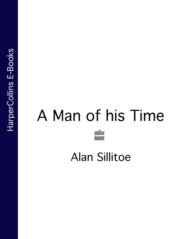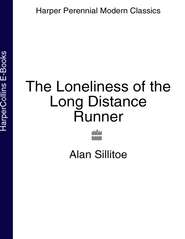По всем вопросам обращайтесь на: info@litportal.ru
(©) 2003-2024.
✖
The German Numbers Woman
Автор
Год написания книги
2018
Настройки чтения
Размер шрифта
Высота строк
Поля
‘After rabbits, with Ken.’
‘All boys together, eh? Why didn’t you let me know you were going out?’
‘You were nowhere to be seen.’
‘I was at Doris’s. She did my hair.’
‘So I see.’ The treatment of her short fair hair had kept the aureole of curls tight to her head, and he liked that, but blue-grey eyes and smallish mouth gave her a desultory, hungry look, as if never getting enough of what she wanted out of life, whatever that might be. She wore a high-necked white blouse with a broad tie of equally white bands hanging between the folds of her small bosom. In her late thirties, she could at times look blowsy and haggard, but the glow of dissatisfaction had restored her to the younger woman he had first seen sitting in a park bench reading a book, and fallen in love with. ‘Your hair looks wonderful,’ he told her.
‘It’s always best if somebody else does it. When I help Doris in the salon though she pays me well. Says I’m one of the best hairdressers she’s ever had.’
‘I’m sure that’s true.’
She liked his compliment but wouldn’t show it, lit a cigarette and said: ‘You could have left a note when you went out.’
‘It didn’t occur to me.’
‘It never does.’
Being married, who needs enemies? He wanted to smack her around the chops, but what was the use? He once did so, and she’d walked out. Then she came back, by which time he had got used to living alone. Now he’d got used to living with her again, and didn’t want her to go. Maybe that meant she would. She was more of a mystery to him than he could be to her, whatever she thought. Perhaps he had been neglectful. All she’d wanted was for him to leave a note so that she would know he would be coming back. Whenever he went out she feared he might not (though that could be because she didn’t want him to) unless he let her know exactly where he was going, and that wasn’t always possible. So now and again he made up fancy little itineraries out of kindness, though he didn’t like having to tell lies, which they really weren’t, since no other woman was involved. He supposed their ten-year marriage had gone on too long, more and more memories neither of them could mention without spiralling into dangerous arguments, topics well recognised so that whoever brought one up knew very well what they were doing, thus breaking the rules, which happened when a seeming indifference on one side or the other caused boredom too painful to be endured.
She was bored now, with him, with life, above all with herself, and the glow of argument was in her.
‘The thing is,’ she said, ‘you’re too selfish. You’re too mean to share your thoughts with anyone.’
And that’s how it should be, yet to be called selfish riled him above all else, too proud to go through the list of what he had done for her, and though to be honest assumed she had done as much for him, he couldn’t think for the moment what it was. He only knew he’d helped other people, often, but such unthinking bastards hadn’t thanked him because they considered his money had come too easy.
‘I haven’t known you to do a good deed in your life,’ she said. ‘It just isn’t in you.’
He’d never told her, because if he did she’d say what a fool he had been to help such people. And so he was. But a pure good deed from the goodness of his heart to someone who would appreciate it out of the goodness of his? No, she was right. ‘Oh, pack it in, for Christ’s sake.’
His menacing tone didn’t scare her, though she knew it should have. ‘Of course, it could be there’s nothing there. I should have realised it from the first. The trouble with me is that I take so long to learn.’
Such painful denigration in her laugh he knew to be a sham. Silence was the only way to calm matters, though she would consider it a weapon. After pouring tea he sat without moving, though smoke from his cigarette signalled that at least he wasn’t a waxwork. The food boiled in his stomach, for there was nothing he could safely tell her. If he really told her what he did to get money, and described the state of his mind, she would scream herself to death, or bury him with scorn. No, she was as hard as nails. They both were, two worlds incapable of meeting on a human and tolerant level. She already suspected he did something crooked to get money, for how else could he have paid for the house from a suitcase of cash? He wasn’t the mortgage type.
She fished for the truth with barbed hooks, the last way to get anything. If one day they decided to kill him because he knew too much they might do away with her as well, and should the police pull him in he wouldn’t want them to think she had been involved. He lived such a life that the luxury of easy conversation couldn’t be for him, and so not for them. Everything cost something.
She sat and faced him. ‘Why did we have to buy a house like this?’
The same old question: a hilltop house with every comfort, only ten miles from the coast, and within a couple of hours of London. ‘It’s convenient. It has a good view.’
‘You mean for your aerials?’ She’d heard it before. Often was too often. She nearly died with worry when he went to crew a yacht back from Gibraltar, and listened to the dreadful weather forecast every day. He took off in the car one morning and said he was going to London, then no word for three weeks. ‘If I’d told you, the worry would have been far worse. If things had gone wrong you might have ended in the drek.’
He was, at best, lavish and fun to be with, so could you wish a man dead for habits which were as much part of his act as falling in love with you had been, though so long ago? One way or another he had made ten years seem like forever, which in a way she supposed she couldn’t fault him for, if she wanted to live that long, which she could never be sure about, with someone like him.
‘There’s nothing wrong with the house,’ he said.
She lit another cigarette, and puffed smoke at his face. ‘Nothing a bulldozer couldn’t set right.’
He blew smoke back. ‘What do you want?’
‘If I knew I wouldn’t be here.’
‘Where would you be? More tea?’
‘How the hell would I know? Please.’
The agreeable feeling of mindlessness he’d had while out with Ken had gone. Freedom and the spacious fields had taken away all worries – the sort of mood she couldn’t know about, or envied him for having. ‘I do what I can for you.’
Like pouring tea. Thank you very much. You know how I live for it. So much preoccupied him, and he wouldn’t or couldn’t tell her about it. He was indifferent to her, didn’t have the resilience to argue and break her boredom. All these years she had sat in the house trying to unravel what routes his blood ran on, but with so little evidence it was useless. He seemed not to care, and only reacted when she goaded him beyond endurance, not even then giving anything away. He would swear and bang his fist against the wall, and go off to sulk in the attic room, where he would either stare despairingly out of the window, or at the curtains when they were drawn. If it was daylight he would glare at the green hell of the countryside. Or he’d sit hunched up at his special wireless taking messages which he said were no business of hers. She might as well be living in a gorilla cage.
He stood, and came to her. ‘Let’s not have a bust-up. I know life’s not easy for either of us.’ A warm tight hand on the back of her neck usually worked in bringing her to what they both wanted. He’d read in a book that the neck was one of the erogenous zones, and he supposed that was because the main cables from the brain ran through such constricted space to get to the sexual regions lower down. Also there was hair close to the neck, as in the other place. ‘You know there’s nobody else I love like you, nobody I care about, almost nobody else I know, in fact, except the people I have to work with, and I’d rather not know them most of the time.’
He was talking, not exactly motormouth, but it would have to do. She stood, and who kissed first was hard to say. His body was a stove. She was always amazed at the heat it gave off, how it warmed her into wanting him, or not being able to resist what he had to give, or thinking that to make love was the only way of quietening him, and herself, come to that. She wanted something, anyway, and at the moment it seemed to be a bit of all three, as long as neither said anything more but just got on with what she must have wanted all day, and what he needed as well by the feel of it.
Green hillside spread up the other slope of the valley, a panorama to calm him. A black and white cow was painted halfway, always the same though sometimes it moved, always when he wasn’t looking. Whenever he opened the curtain there it was, and who carried the animal to another position in the night he never knew. Maybe it wasn’t the same cow, a different one taking its place when the present cow had gorged itself sufficiently on succulent grass it didn’t even have to stand up and search for. Perhaps the cattle had a pow-wow as to who should have the hallowed spot the following day. Being so prized it had to be shared, the riches of the world passed from mouth to mouth. No one cow could be allowed to scoff too greedily at the trough. Well, he’d had more than a good patch in the last few years, and nobody had come to push him aside.
He put on the radio, a flip of the dial, and the only true music came from the stratosphere, a contemporary rendering of the heaviside quartets tinkling through clear sky and hitting cloud which sorted out the various rhythms. Every note he could get sense out of meant money in the mattress.
He’d made enough from a couple of Gibraltar trips to buy the house, and put something by. On the way he had taken down the weather in morse from Portishead Radio, and steered them from a storm that might have swamped the boat overloaded with the most head-banging powders on earth. He fiddled with a receiver which a crew member had bought for a tenner in a pub thinking it was an ordinary wireless. Near to home on the return trip Richard had heard jabber from the coast guards, so they knew what coves to steer clear of, which so impressed the Big Man (they called him Waistcoat) that he was promised money whenever he sent in a transcript from Interpol.
No problem, so it turned out. He was able to let them know when the police would be waiting at Frankfurt for a consignment from Colombia, so the bods on board were advised to come down in a different place, and all was well. The police waiting at Frankfurt had their names, dates of birth, what luggage they had, and how they were carrying the stuff. False bottoms of suitcases was the least of their ingenuity. Somebody must have put in a word for whatever reason, and Richard’s intelligence might indicate who and why, so he didn’t doubt that a few had been snuffed out for their try that went wrong.
After eight years as a radio officer in the Merchant Service he could get anything that was floating in the aether out of a radio. He was good at it and could do no wrong. Whenever anything useful came up he phoned it through, and they paid him well, money for old rope, just for sitting on his arse and trawling the short waves all day between looking at that picture-book cow noshing the best of green grass on the hillside – a gilded calf if ever there was one. He couldn’t understand why the Mafia and all big outfits of the criminal world didn’t recruit personnel to scour the communication systems of their law-enforcing enemies. It would have made sense and cost little.
Money unblocked the log-jam of one’s dreams, brightened the nights and days. All the sharp and clever people wanted their share, made a beacon out of themselves hoping money would home in and stick. He’d picked up a long signal from Africa, concerning Sambo Jean-Jacques who was a chauffeur and guard of the secretary of state for defence in Zaire – or some such place – and purloined a hundred million francs by forging his boss’s signature at the local bank when he was away on leave. Jean-Jacques was last seen heading towards Uganda with his girlfriend, false passports in their pockets. Richard hoped he had got clean away, after such ingenuity, and even worked out all possible routes on a Michelin map to see what his chances were, deciding they must be good, despite wireless signals going all over the place trying to stop him.
He was aware of such power, though often afraid to use it, except for prompt and spot cash. His French was good enough to pick up plain language in morse from the police network in France. It was interesting to hear vital statistics of criminals and their whereabouts. Some villain, he learned, had stolen a car in Nice (a good Mercedes, licence number given) and was on his way to his sister’s in Lille. Her name, address and telephone number were given, so Richard had the power to pick up the phone and in two minutes warn her that trouble was on its way. Schoolboy French would just about run to it. He would whisper that she should try to save her errant brother, except that to do so might be too risky. He was putting himself enough on the line as it was. How could he tell Amanda what he was doing? All she needed to know was that wireless listening was his hobby. A high-tension shock had gone through him only this morning, after a wonderful night of making love. She had even got his breakfast of coffee and rolls, butter and jam, and no one could have done it better.
‘The police called yesterday,’ she said.
The jam turned sour. ‘What the fuck for?’
‘Don’t swear, darling.’
Why not? It was too early for fear not to hit him. ‘Sorry. What did they want?’
‘It was about the football field at the end of the lane. Some vandals had sawn through the goalposts with an electric saw, and they wondered whether we’d heard or seen any of them driving away.’
‘I didn’t.’ His head had been down on more important matters. The jam tasted halfway good again. ‘Didn’t hear a thing.’
‘Neither did I.’
‘If I had, I’d have killed the bastards. They should be shot on sight.’
She poured coffee for them both. He wished she could be like this all the time, but knew he had to earn such brief interludes of care and attention. ‘I do wish you wouldn’t use violent language, though,’ she said.
‘I know. Sorry about it. But vandalism like that gets my goat. I hate it. The kids in the village play there a lot. I really would have liked to have caught them.’ He would, except they might have been the ones who did it. They’d have thought lightning had struck. His fists itched. They always itched, from knuckles to wrists, but the knuckles especially, though he resisted scratching. They had got at him personally, whoever had done it. Such destruction was purposeless, sheer spite, enjoyment of the lowest sort, done out of hatred against everyone and everything.










